Dev Patel's Action Star Moment Has Finally Arrived
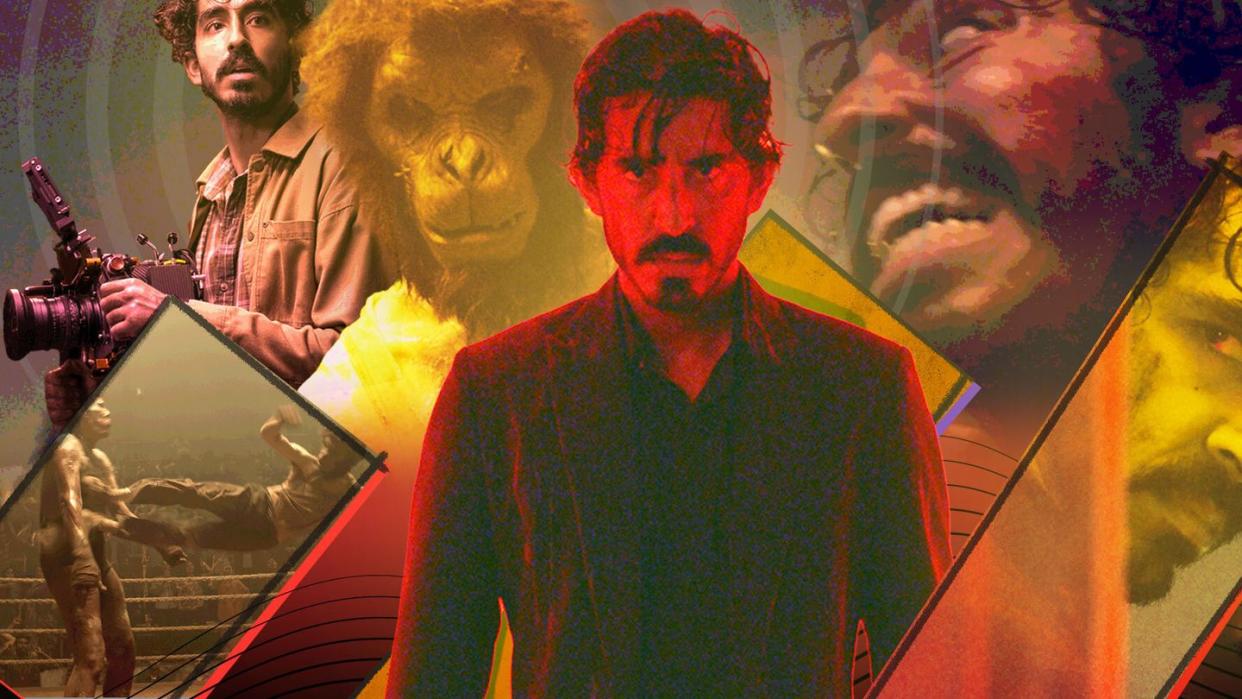
- Oops!Something went wrong.Please try again later.
- Oops!Something went wrong.Please try again later.
"Hearst Magazines and Yahoo may earn commission or revenue on some items through these links."
MONKEY MAN, THE new Jordan Peele-produced movie releasing this week, defies easy categorization. It’s a revenge saga à la John Wick, but also a repudiation of India's caste system. It deploys hero’s journey tropes the movie-going public will find immediately familiar, but also references Hindu mythology Western those same audiences likely haven’t encountered. It's an underdog story that was initially slated to go straight to streaming, but was championed by one of the biggest names in modern movies to a wide theatrical release and pegged as a potential breakout hit. The easiest way to understand Monkey Man, then, is to understand the main creative and physical force behind the project: director and star Dev Patel. The film is, most simply, a showcase for Patel and his undeniable range of talents.
While its themes aren’t so easily defined, Monkey Man is an action movie at its core. If you don’t buy Patel’s genre bonafides at the outset, though, you’re probably not alone. Even 15 years later, the actor is—at least in the eyes of many moviegoers—still closer to the gangly kid who led Danny Boyle’s 2008 Best Picture-winning Slumdog Millionaire than a screen presence like Keanu Reeves, who only became John Wick after a long career taking on physically-demanding roles. Now 33, Patel hadn’t appeared in action movies before Monkey Man, with most roles in his post-Slumdog career coming in dramas like Lion (for which he was nominated for an Oscar) and indie fare like A24's The Green Knight.
But Patel wanted to break into the genre he loves. He was an action movie junkie from a young age ("I snuck downstairs and watched Bruce Lee through the banister in Enter the Dragon—it changed my life," he tells Men's Health), and over the years had opportunities to play parts in similar films. But those roles never felt right—likely due to perceptions about exactly who is believable kicking ass on the big screen. “There were action scripts that came in, but I was always offered the sidekick, or the tech guy, or the whatever,” he says. “I knew I had so much more to offer.”
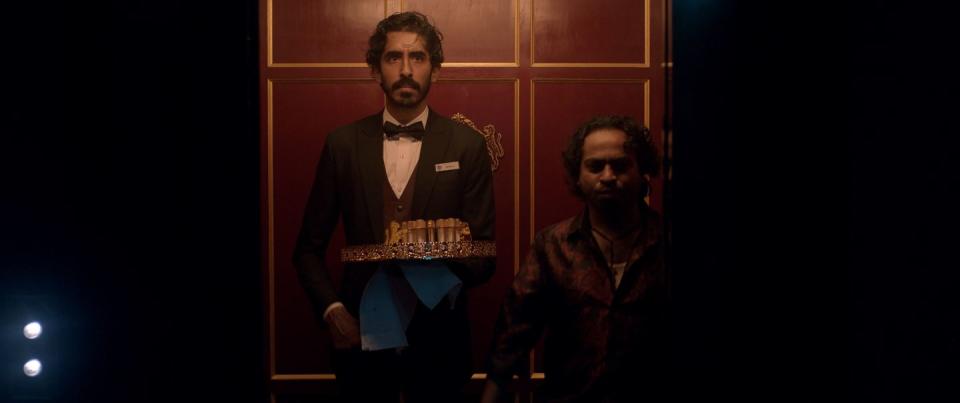
He also felt there was something missing in the space, even as Reeves’s popular series has sparked a Hollywood action renaissance over the last decade and brought high-concept, R-rated cinema violence back into style. Rather than waiting for the right role to come to him, Patel created one, essentially willing Monkey Man into being as a way to forge his own path. “I knew the genre was lacking a true underdog character. I wanted to create a hero that didn't have all the perfect quips, and didn't look like he was jacked to the gills,” he says. “Like, [someone who] you knew was going to be able to take on a hundred men—[I wanted] the opposite of someone like that.”
He’s credited for the film’s story, is one of three credited writers of the screenplay, and he served as a producer. It’s his feature-length directorial debut. Forget imagining who else might have played the lead if he wasn’t available—there simply is no Monkey Man without Dev Patel.
An Action Star Pedigree
The irony of Patel’s long wait to enter the action genre is that he's better suited at his core than most for these types of roles, perceptions be damned. Before he started acting as a teenager in the UK cult teen series Skins, he was an unruly, boisterous kid growing up in London who needed an outlet for his energy and a place to avoid getting into trouble with the wrong crowd. So his mother put him in martial arts classes starting with karate, then taekwondo. This is where Patel flourished. “It was the first time I learned about discipline and how to channel my energy,” he says, recalling that this was also where was also given legitimate responsibility for the first time. “I excelled quickly in those classes and started to teach the [younger] kids.”
Along with teaching, Patel competed at the national level, winning a bronze medal at the Open Martial World Championship in 2004. He earned a black belt in the discipline in 2006. He admits that he hasn’t practiced consistently over the years, as acting has been his main focus, but was always hoping to put those deeply-ingrained skills to use on camera.
Monkey Man allowed Patel to take his experience a step further, not only performing on screen but allowing his knowledge behind the camera to help design the film’s many intricately choreographed fight scenes. When the first teaser for the film dropped earlier this year, highlighted by a clip of the actor wearing a suit and dispatching a wave of combatants with knives, pans, and even an oven door, people started calling it “Indian John Wick.” Patel understands this is the main point of reference for today’s American audiences, and doesn’t resent the comparison. After all, the production was originally slated to work with the Wick series's stunt team, which Patel calls "legendary."
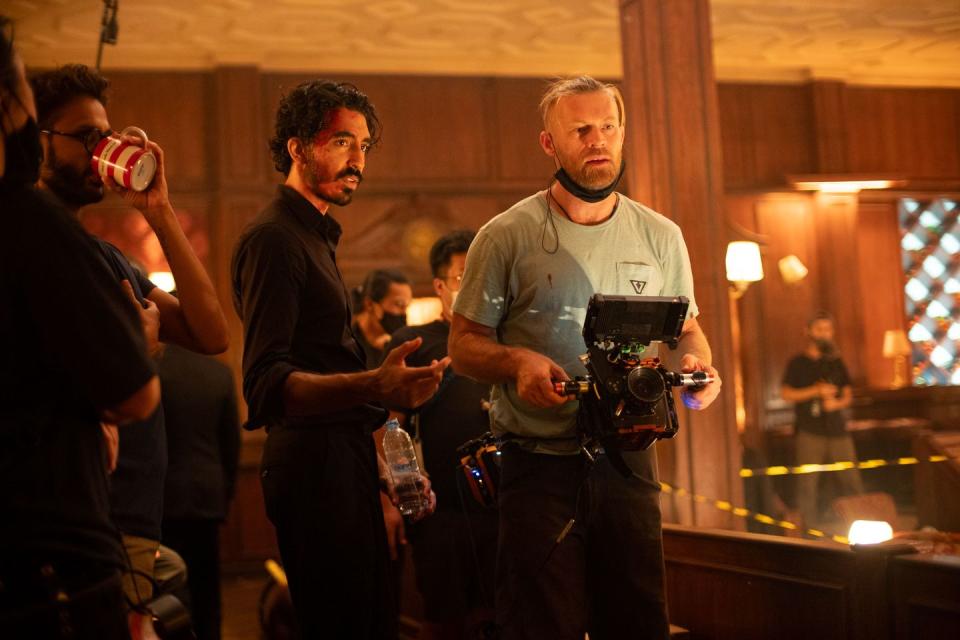
That wasn't to be, however—Monkey Man was filmed during the Covid-19 pandemic, and due to travel restrictions and "other issues," that connection fell through. "I was like, 'Oh man, we're done—how are we going to do an action film without a stunt team?’"
After a bit of brainstorming, he took to YouTube, found the fight coordinator Brahim Chab, and convinced him to join the project at the last minute. The replacement might have been a blessing in disguise; Patel speaks highly of Chab, and the pair were able to work together in an especially close capacity to create the film's electric combat sequences.
"I was one of the stuntmen as well as directing," Patel says. "I would go in super early in the morning, warm up, train with those guys. And I do have some experience—so [Chab would] put some stuff in, and I might say ‘What if we did this? I can actually do this kick—why don't we make it a spin back kick instead of a normal kick?’ And we constantly kept trying to push each other."
The result of the collaboration is a film filled with visceral action and some genuinely creative kills. What Patel's character (referred to as "Kid" in press materials, but never named in the movie) lacks in lethal proficiency he makes up in pure determination. Where Wick is balletic and graceful, Kid is brutal and improvisational; to avoid spoiling a few particularly gnarly moments, let's just say he doesn't hesitate to use more than his hands and feet to win a fight. "It's actually some of the hardest acting I've ever done," Patel admits. "I'm this unwieldy, gangly dude, but the idea was to make it as jagged and as primal as possible. He's a caged, cornered animal."
A Different Kind of Montage
Like any good action movie, Monkey Man features a training montage. "I've always loved [the training montage]," he says, calling out the Rocky franchise and its spinoff, Creed, as the standard. As a genre fan, he understands the power of these sequences: "I know people are going to cut this thing out and make it a YouTube video." Patel took this as an opportunity put his own spin on the format, while also highlighting cultural touchstones he feels have been underrepresented in Western media.
The scene, which takes place as Kid is recuperating from injuries in the care of an outcast group of gender-nonconforming people, plays out like a duet between Patel and Zakir Hussain, a legendary tabla (drum) player who Patel calls "one-of-one."
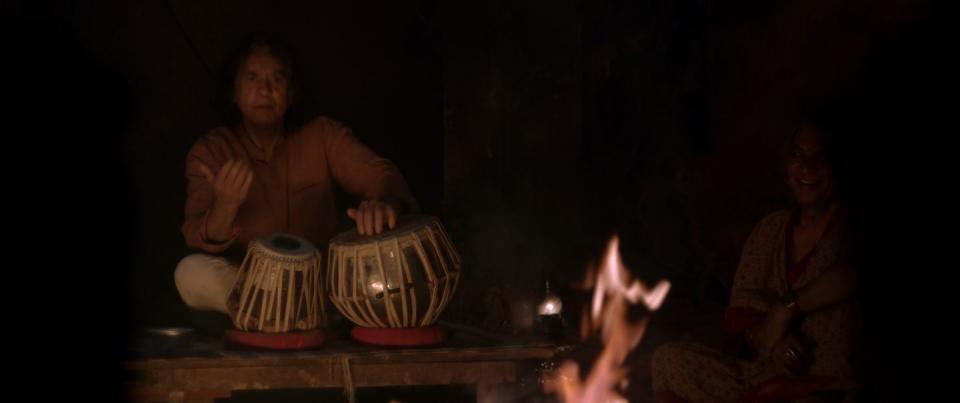
"In India they call it a jugalbandhi, which is a call and answer. It’s like a piece of jazz," Patel says of the scene, where he pounds away at a bag of rice with increasing skill and tenacity. "I was like, ‘You're going to be tearing up the drums, and I'm going to be responding with this dusty bag. You're gonna be this amazing, wordless teacher and teach me with your instrument, how to tune mine.'"
The scene marks a shift in the film, as Patel starts injured and weak, but finishes visibly bigger and stronger. He's lithe and impressively vascular, but he's never too muscular; given the circumstances on the shoot and the underdog nature of the character, Kid was never going to be a swole action hero. Instead, Patel says the goal was to get "as close to Bruce Lee-shredded as possible." He used bodyweight exercises, resistance bands, and the physically demanding choreo handled the rest.
To stay lean, his diet was simple: "I was eating salmon, sweet potato, and lettuce three times a day, every day of the week, for nine months," Patel says.
The Underdog Wins
After the montage sequence, Monkey Man kicks off a propulsive final set piece that will excite even the most intense action fans. Yes, it's reminiscent of Wick, but headier—Patel notes how Kid's ascension of violence "can be applied to the caste system of India," as he beats people up, making his way from a hotel's kitchen all the way up to the penthouse suite.
He's also quick to call out all the films and martial artists that influenced him, citing Korean films like Oldboy, I Saw the Devil, A Bittersweet Life, and Man From Nowhere as important touchstones—"they do revenge better than anyone on a visual and emotional standpoint," he says—along with the Raid films from Indonesia. He sees a parallel structure in Kid's increasingly higher-status fights to Bruce Lee's in Game of Death. Bollywood movies from India were also part of the equation, specifically Koyla, a Shah Rukh Khan revenge film that stuck with Patel for its red-eyed, sweaty protagonist.
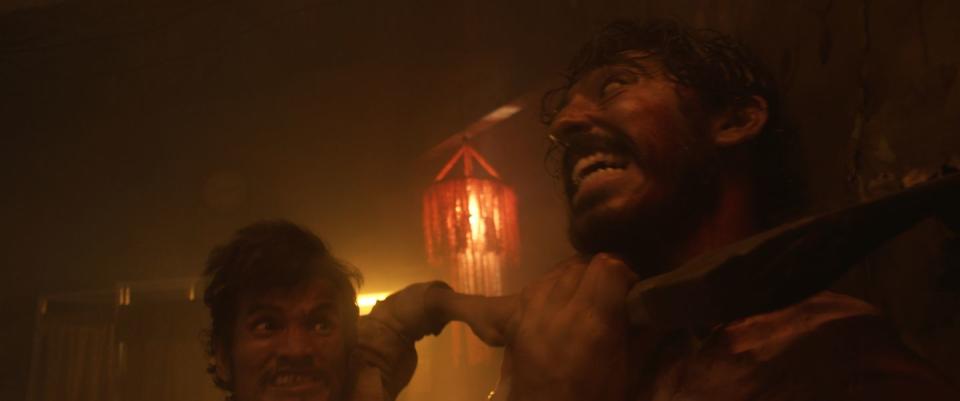
Monkey Man was born of Patel, but the movie would not have all of its pre-release momentum—a festival premiere, full press tour, and a spring theatrical release date positioned for an early season breakout—without another genre auteur stepping in. The film was initially slated for a direct-to-streaming release on Netflix in 2022, but that didn't happen. "I was getting ready to say goodbye to my dream, and [the film] was gathering dust," Patel recalls. He moved on, booking a role that took him to the English countryside and away from the reminders of what he might lose if Monkey Man was canned. That was when he got a call from his agent, who asked if Patel had ever heard of a guy named Jordan Peele.
"I was like, ‘Come on, man. Are you kidding me?’" he says. Peele had watched Monkey Man—not just once, but three times—and wanted to speak to Patel. "We spent three hours [on the phone]," Patel recalls. "It was like a therapy session. He really keyed into and understood everything I was trying to do with the film." Peele wasn't just a fan or peer, either: he wanted to become a partner. His Monkeypaw Productions and Universal Studios bought the film, and Peele came on as a producer for the theatrical release.

For Patel, the unexpected deal was the culmination of his hard work as a first-time director, and a coincidental parallel to the saga of his debut film as an actor. "It was like that moment with Slumdog Millionaire, when the film got dropped by the studio, and it was never gonna see the light of day," he says. "By the grace of a few people, that totally changed, and it changed the trajectory of my career."
His career has been defined by underdogs, both on the screen and behind the camera—so it should come as no surprise that success for Patel has less to do with box office numbers and more with what he has been able to create, both for himself and anyone else who's dealt with similar adversity.
"It's a huge cultural moment for a lot of people that look like me or relate to me," he says. "I've yearned to be represented in a film like this. I've yearned for action films to not only have the bone-breaking visceral action, but to have some substance. I want to come away from it not just thrilled by action, but a bit more nourished and emotionally richer, or learned about something in the world—whatever that may be."
You Might Also Like

